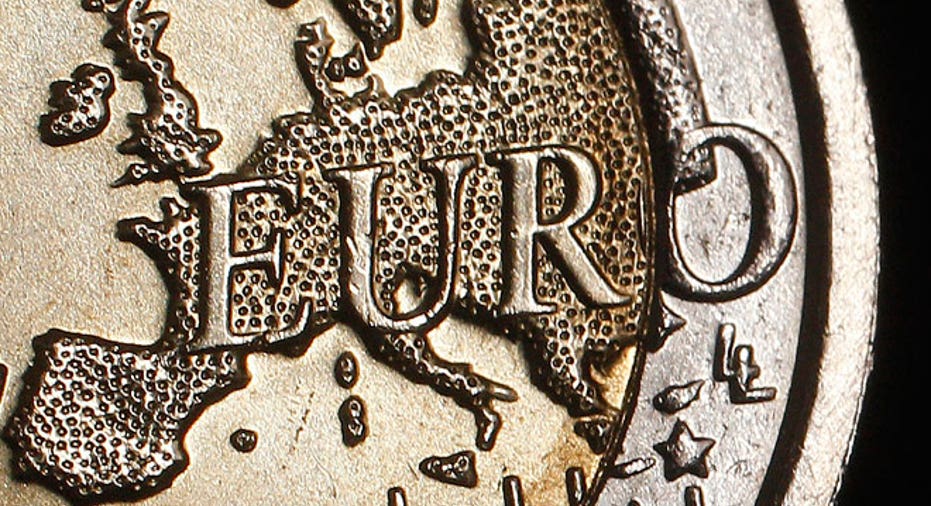Should the ECB Deploy its Bazooka on Bond Yield Caps?

The financial markets have been buzzing about a bold new plan by the European Central Bank to cap the surging yields on the bonds of eurozone countries.
In theory, the ECB would be aiming its massive bazooka at debt-ridden nations like Spain to prevent their borrowing costs from spiraling out of control.
While the yield cap idea is certainly possible, such a move without strings attached would likely be riddled with complications, be deeply unpopular to stronger countries like Germany and could even be risky to the ECB’s financial health.
“Ultimately it won’t work. The only thing it will do is impede, impair and severely damage the credit quality of the core just to try to throw a lifeline to the periphery,” said Bill Hassiepen, vice president and co-head of the ratings desk at ratings firm Egan-Jones.
Now in its third year, the eurozone sovereign debt crisis has pitted creditor nations in the union’s core like Germany, the Netherlands, Luxembourg and Finland against debt-ridden ones on its periphery such as Greece, Portugal, Italy and Spain.
Transmission Vehicle
Theoretically, the ECB could help the weaker countries by intervening when their bond yields spike above pre-determined levels, either through explicit targets that were publicly announced or implicit ones.
German magazine Der Spiegel reported earlier this week that the ECB is exploring such a move, though the central bank later called the report “misleading.” The magazine didn’t spell out whether the ECB was considering limited or unlimited bond buying, but Spanish officials have called for the latter.
Given the ECB’s unlimited access to funds (it can always print more euros), a cap on yields would likely succeed in lowering borrowing costs for debtor nations in the short term.
The ECB, which is run by Italian Mario Draghi, would justify the intervention by arguing its monetary policies are not being “transmitted” to the peripheral countries due to the markets “mispricing” their credit risks.
‘Transfer of Wealth’
However, capping bond yields without conditions would be a very tough sell to stronger countries like Germany and could actually backfire.
“To have unlimited ECB buying at least initially would seem to be a victory for the debtors over the creditors,” said Marc Chandler, global head of currency strategy at Brown Brothers Harriman. “They in effect would get a blank check from the ECB. The creditors cannot allow that to happen.”
Hassiepen said a cap on bond yields would “severely impair” the financial flexibility of core countries and serve as a “transfer of wealth from taxpayers of the core to the sovereigns of the periphery.”
Even if the richer countries could be sold on this plan, there are also some logistical impediments.
For example, it’s not clear what should trigger an ECB intervention.
According to the Der Spiegel story, the ECB would step in if the yields on bonds exceeded the rates for benchmark German bonds by a predetermined amount.
But how does the ECB come up with those spreads without it seeming arbitrary?
“In a sense they’re turning themselves into a ratings agency, an implicit one anyway,” said Jan Randolph, director of sovereign risk at IHS Global Insight.
Jacques Cailloux, a contributing economist at Nomura, said the ECB should target the actual yield levels (for example, 5.5% on Spain’s 10-year bond), not the swaps.
Targeting swaps “would be counterproductive and possibly dangerous in the event” of a severe fluctuation in Germany’s bonds, Cailloux wrote in a note.
Another question being raised is whether or not the ECB would publish its explicit rate targets, or keep them implied through market intervention.
“I don’t think they can officially declare the targets,” said Chandler. “It’s sort of like waving a red flag in front of the market.”
Can ECB Afford Yield Cap?
It’s also not entirely clear if the ECB has the credibility or the cash to undertake such a massive intervention without fanning inflationary fears.
Even though the ECB’s balance sheet has swelled north of 3 trillion euros, it actually has just 5 billion euros in capital, said Hassiepen.
Therefore, Hassiepen said the only way the ECB would be able to institute a yield cap would be “to print euros like there’s no tomorrow.".
The ECB could also still suffer losses on its bailout of Greece, which lists the central bank as its biggest creditor.
A severe writedown of Greek debt “could wipe out all of [the ECB’s] capital,” said Chandler. “It would have to be recapitalized, which would be very embarrassing.”
Chandler added, “The ECB doesn’t have the same credibility in the marketplace as the Federal Reserve.”
All of these questions lead Cailloux to conclude that it’s unlikely the ECB will soon “embark upon unconditional yield targets across all euro area countries.”
However, Cailloux and others do believe the ECB could intervene and keep a lid on yields only for countries such as Italy and more likely Spain that request a bailout, because this would include conditions like new spending cuts that would placate Germany.
Even with this more likely scenario, which could be announced at the ECB’s September 6 meeting, the central bank would be “guiding market expectations through its intervention, rather than publishing an explicit yield target,” said Cailloux.



















